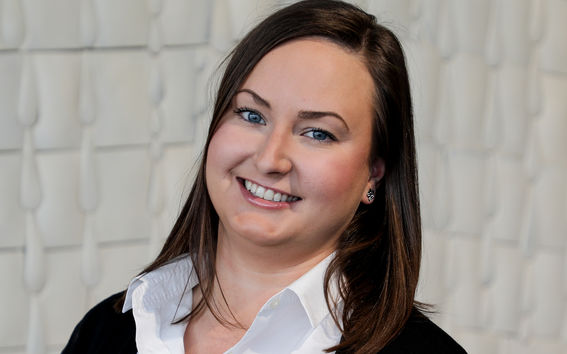Aalto University Summer School
Aalto University Summer School offers high-quality academic summer courses and programs at Aalto University during the winter and the summer.

The unexpected circumstances of 2020 forced many summer schools around the world to cancel their planned courses. Aalto University Summer School was able to move most of their courses online, including challenge-based intensive course Digital Business Master Class. At a time when opportunities for international physical mobility are minimal, the online session was warmly welcomed by the School of Business’s partner universities as well as the UNITE! university network.
‘We noticed that there was a big demand for highly facilitated and collaborative online courses due to COVID-19, so we doubled the intake for the Digital Business Master Class,’ says Head of Aalto University Summer School Laura Sivula. All 60 available places were filled, with more interested people remaining on the waiting list. The course participants consisted of students from Aalto University, international partner universities and Aalto University Open University, as well as professionals from around the world.
During the intensive course, student teams worked on business projects with challenges provided by partner companies CGI, Hartwall and Helen. The project work was supported by daily synchronous online lectures on different digital topics, including Data-Intensive Business, Ethics of Artificial Intelligence, Platform Business Models and Leadership in the Digital Age.

Laura Sivula, Head of Aalto University Summer SchoolThere is a big demand for highly facilitated and collaborative online courses due to COVID-19
For many students, the Digital Business Master Class was the first fully online teamwork experience. Facilitating international and multidisciplinary teamwork was a priority in course organization from the beginning. ‘Avoiding significant time differences was essential in planning the team compositions. Supporting different time zones will be an important consideration also in our future online courses,’ Master Class Program Manager Laura Kitinoja explains.
Establishing a high level of communication from the beginning of the project was the key to a successful online teamwork experience. Open University student Iida Karlstedt says that her team benefitted from daily check-ups: ‘In our team, everyone was dedicated and eager to contribute. We organized a team call every single day during the two intensive weeks. Even if it was just a 15-minute check-up call, we made sure that we were all on the same page and talked about any problems we were having.’
While some students missed the personal face-to-face interaction, the project results did not pale in comparison to regular challenge-based courses. ‘I learned that you do not need to be sitting next to each other to have successful and interesting lectures and collaboration within a team,’ summarises Luca Müeller, who participated in the course from Switzerland. The projects received positive feedback also from the partner companies. Development manager Atte Aro from Helen thanked the student teams for a job well done: ‘The students did a great job and delivered results of professional quality. The recommendations were comprehensive, and new ideas and benchmarks are very useful for us.’
Learning as many new technical skills as possible was Jennifer Jaw’s (University of British Columbia, Sauder School of Business) initial goal for the Master Class. However, at the end of the course, she felt that the most important lessons were not the hard, technical skills but the philosophies and ideas that guide our way of thinking. ‘I think these philosophies and frameworks are the most valuable lessons because technology changes all the time. It is ultimately up to us to learn about new and upcoming technologies and how they can be applied to our situations,’ Jaw says.
An inquisitive mind and the ability to apply knowledge to changing situations is ever more important with the fast pace of changes in technology and ways of working. Program Manager Laura Kitinoja is happy with how well the challenge-based course translated into the online format: ‘This experience showed that there is currently great interest in short-term virtual mobility. The learning experience of a challenge-based course can be significant even without the traditional face-to-face component. It is rewarding to be able to help students build an important skill set for the future of work.’
Digital Business Master Class (6 ECTS) is a master-level course organized twice a year by Aalto University School of Business as a part of the Aalto University Summer School offering. The course will be offered again in March and July 2021, either on campus or online depending on the global pandemic situation. The application period for the Spring 2021 course will open for international participants in October 2020.

Aalto University Summer School offers high-quality academic summer courses and programs at Aalto University during the winter and the summer.


